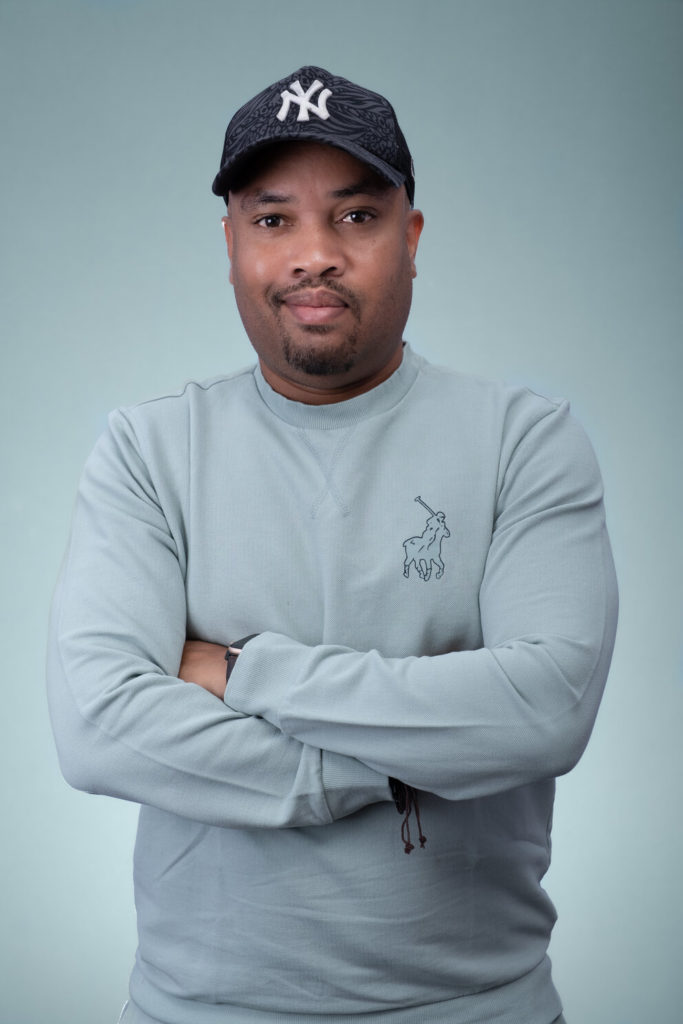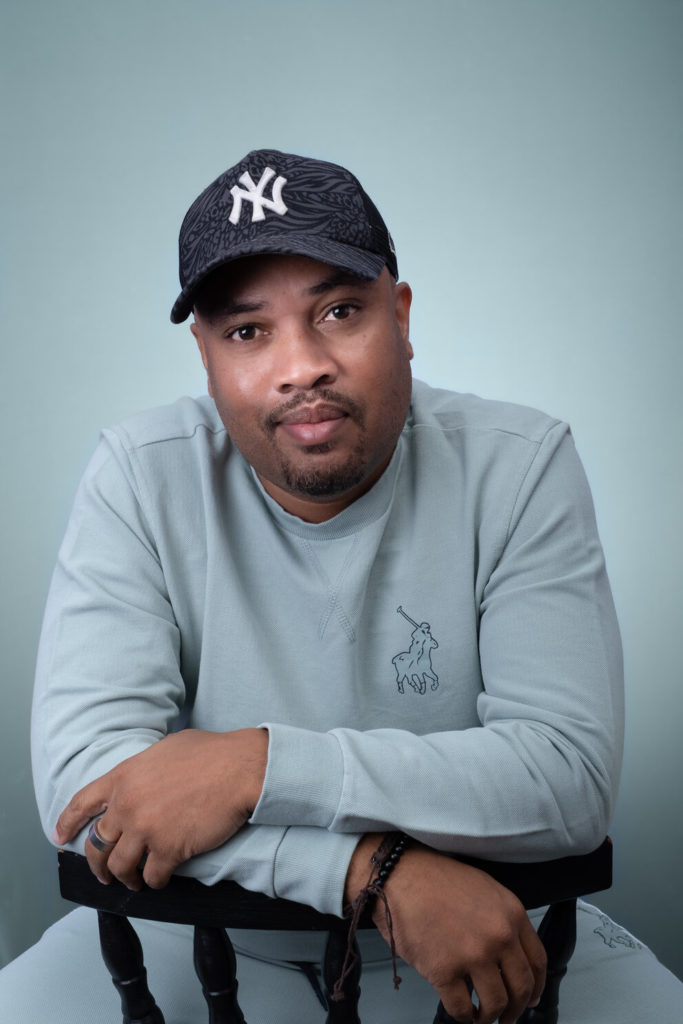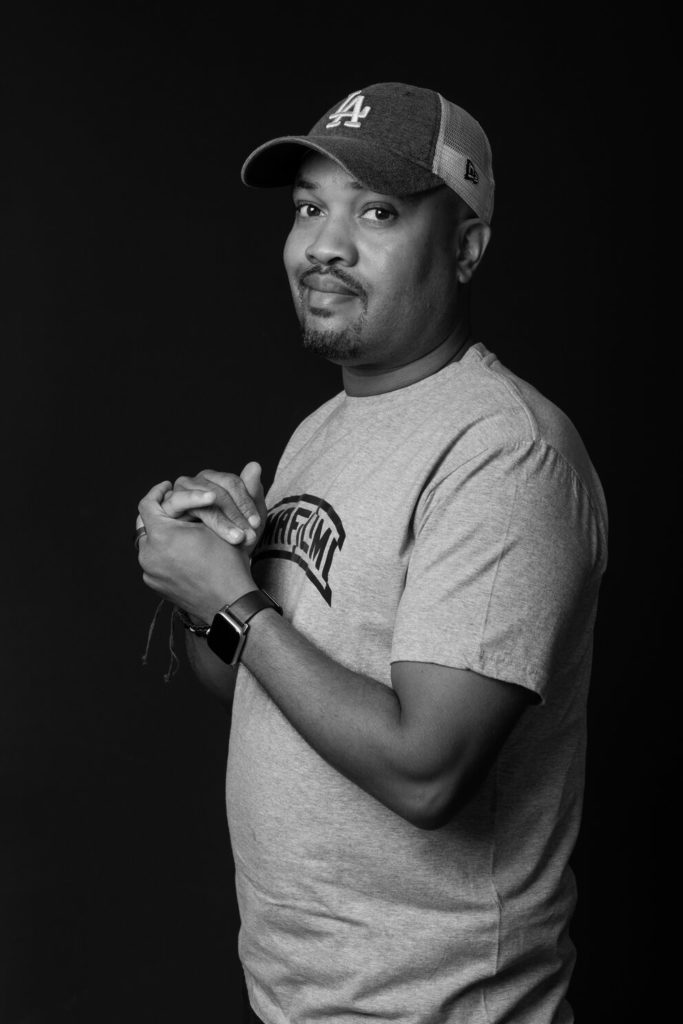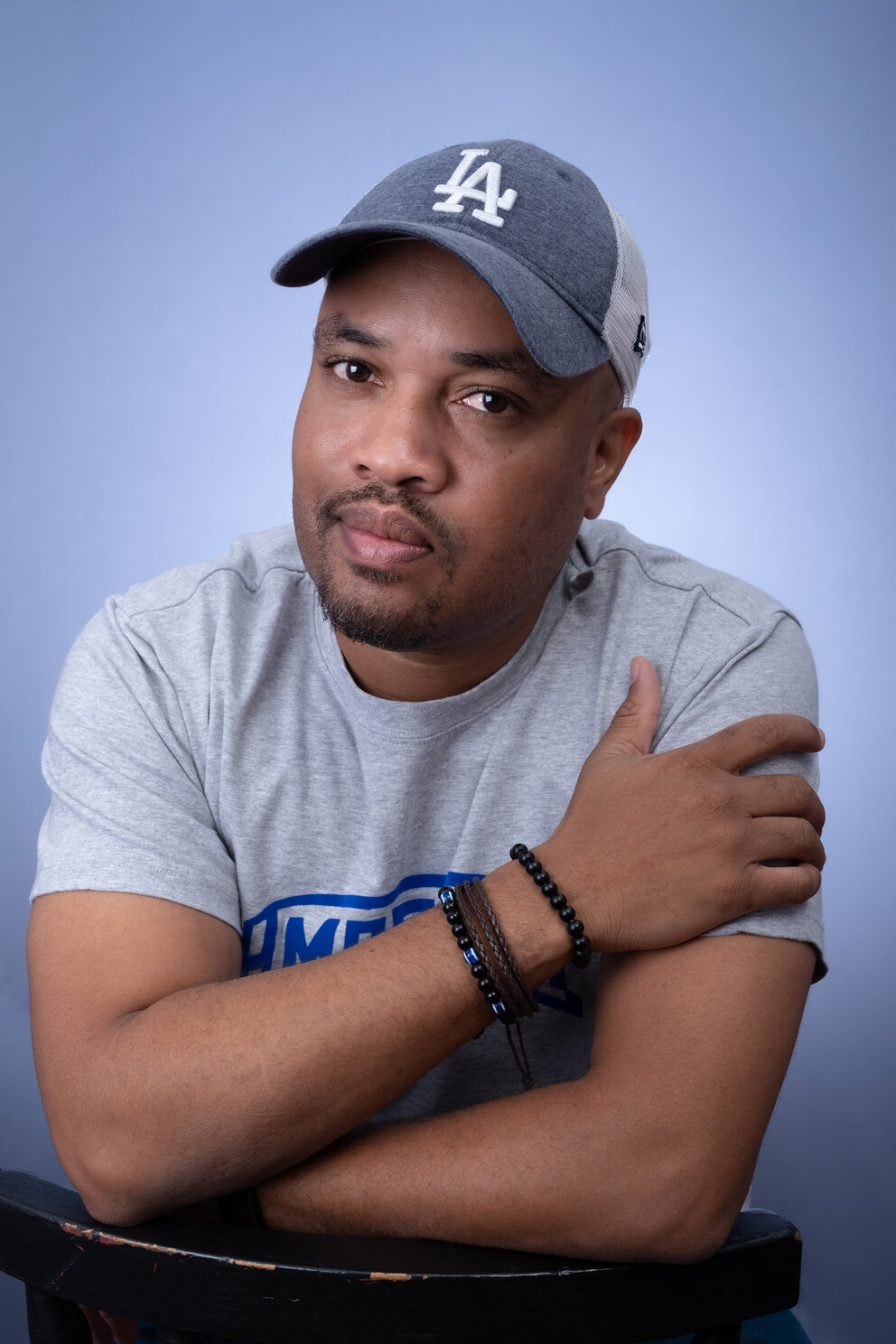
Telling stories of hope
I was born in KwaMashu township in Kwazulu-Natal as Mqondisi Ngubane, or “MQ.” I was named by my grandmother who envisioned me as a “Mqondisi,” an isiXhosa word meaning “director”. This turned out to be prophetic – my name heralded my future – it was as if it was known from my birth that my destiny was to become a director.
Following my matriculation from Glenwood High School in Durban in 1998, I took off to Swaziland to visit my mother to share my matric results. My father had died when I was 13 years old and she was my all. On this weekend there happened to be a party that was hosted by Kenneth Nkosi and Rapulana Seiphemo in Mbabane… they were at the time popular for their acting roles in Isidingo. I, being ambitious and harbouring aspirations of entering the film industry, seized the opportunity and shared my dream with them. After spending two hours convincing them about my passion, they arranged a meeting with an artist’s agency. I took a taxi to JHB to meet with the agent, who agreed to cast me in a role in Isidingo – an experience that only lasted two days – I got fired as I was pathetic actor!
During this time I had a very close friendship with Sphe “DJ Spectacular,” who was studying at Wits University and allowed me to “squat” with him, as I didn’t have a place to stay. This led to an opportunity to help start the university radio station, Voice of Wits, an experience which ignited my hunger for a new challenge – working on radio. Relentless in this pursuit, I was eventually given a voice recorder and asked to go around recording random people saying the dumbest things, which I did for two months.
Once day while waiting outside radio metro studios with my backpack filled with film scripts I had started writing from the age of 6, I caught the attention of a lady who worked for a company called Black Rage, run by Dino Varia and Kutlwano Skhosana, who had just bagged the Channel O account and a music TV show called Basiq. They were also script writers of the popular international TV show, Law and Order. They recognised my determination and saw in me a young man who wanted to do big things.
Thus destiny intervened and I got my foot in the door as a key script writer for the channel until 2004. It allowed me the opportunity of being mentored by esteemed directions from around the world. Introduced to the field of film directing and commercial short form films, which at that time had only a handful of black directors, I left Velocity Film to join Faith Creations, which was led by Sunni Caner, famous for being a pioneering film director. With high ambition and commitment to my goal, I speedily became recognised as one of the best commercial directors.
By 2014 I had enough confidence to build my own brand and established a business as a long form film director. This allowed me to utilize my hard-won art and industry knowledge in the production of drama series, documentaries, and movies.
The brand MQ successfully grew my name in the industry and I produced documentaries about Brenda Fassie and Nelson Mandela as well as popular drama series such as Ingozi, Uzalo, Ngempela, eHostela and Black Tax. These shows reached epic high viewer numbers and I was credited for these successes through my involvement as creative director. My current project, Bettina Wethu, an African version of the popular American comedy Ugly Betty, is shooting its second season.
The brands MQ Films and MQ The Director are one entity but operate autonomously. As MQ The Director I am often called to work in African countries such as Kenya and Ghana, and for various brands, such as Safari.com, WBHO and Danone.
My successes with big brands further grew my status as the “go to” creative director in an industry that was far from transformation – where talent of colour was marginalised and segregated – presenting Black directors with many challenges.
Black African creatives were often side-lined in the commercial space, barring access to the most profitable and highest form of film production globally, limiting our brothers and sisters to share a small piece of the pie producing TV dramas, documentaries, and feature films.
I still find it disappointing that even so many years down the line, this predicament is still prevalent, with only a few black creatives allowed access in this space, which is challenging, yet is the greatest level of achievement for any director, as not many have the skill and craft to be able to tell a story in less than 30 seconds – which then qualifies one to be able to tell a story in 90 minutes – a fundamental aspect in creating films as it instils discipline. I have dedicated myself to change this narrative by educating, growing, and availing as many opportunities as possible for African Creative Directors to participate in the most profitable form of filming – commercials.
In my opinion, the industry has done a great job in portraying the long form film as the ideal, presenting it as a ceiling, when in fact, it isn’t. My goal as a film maker is to tell stories of hope, stories that inspire and instil valuable life lessons, more like American film maker Tyler Perry.
Hence, my quest to fulfil the essence of my name, Mqondisi, continues …..

By Mqondisi Ngubane
